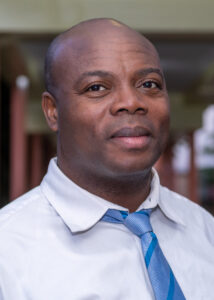The Symposium is Here!
 The Ancient Greek used the συμπόσιον (symposion) in their drinking parties, where participants would engage in discussions, poetry recitations, music, and intellectual conversations, often accompanied by wine. The tradition was not unique to them. Likewise, the Egyptian Snwt (Senut) served as occasion to joyous celebrations, sometimes even with a religious or ritualistic component. The Fang of Africa still feature griots, storytellers, or elders who share oral histories, proverbs, and wisdom. While the Yoruba’s Ẹgbẹ́ bring together social or spiritual groups, often with food, music, and intellectual or spiritual discussions. These sessions serve as a forum for intellectual and cultural exchange.
The Ancient Greek used the συμπόσιον (symposion) in their drinking parties, where participants would engage in discussions, poetry recitations, music, and intellectual conversations, often accompanied by wine. The tradition was not unique to them. Likewise, the Egyptian Snwt (Senut) served as occasion to joyous celebrations, sometimes even with a religious or ritualistic component. The Fang of Africa still feature griots, storytellers, or elders who share oral histories, proverbs, and wisdom. While the Yoruba’s Ẹgbẹ́ bring together social or spiritual groups, often with food, music, and intellectual or spiritual discussions. These sessions serve as a forum for intellectual and cultural exchange.
From July 6-10, 2025, the Jesuit Historical Institute (JHIA), and the Jesuit Conference in Africa and Madagascar (JCAM) will hold on to that tradition of gathering, socializing, storytelling, and intellectual exchange around the theme: The Spiritual Exercises in the African Context.
The gathering will bring together scholars and practitioners of the Spiritual Exercises, from Spain, Rome, Nairobi, Cameroon, Tanzania, Rwanda, DR Congo, South Africa, Zimbabwe, Nigeria, the United States, etc. not in the academic setting which Hekima University College might have been, but in the Jesuit Spirituality Center of Mwangaza. For this symposium is not, like the Spiritual Exercises themselves, a mere formal meeting or conference where ideas are exchanged, often focused on scholarly or intellectual topics. It will be instead tied to the convivial and social atmosphere of the original Greek, Egyptian, and African symposia, faithful to the Ignatian heritage of the host institutions.
First of its kind, the coming symposium assumes a simple fact: That the Spiritual Exercises of Saint Ignatius of Loyola are an African reality, and that Africa, in turn, can enrich them, help renew their methods and practices. Already, Africans of different backgrounds have become familiar with the Exercises. They have translated them into their African languages. They have offered theological interpretations of the Exercises. They use the Ignatian language of colloquium, spiritual conversation, retreats, discernment in common, faith-sharing in their prayer life, the organization of their communal life, and other symposia in which learning emerges from practicing, socializing, public performance, rituals, the palaver, etc.
These Africans, along with their non-African colleagues, will go back to the original context and sources that gave birth to the Spiritual Exercises, and make the case of how the Spiritual Exercises have become African, through academic research and the different ways the Exercises are done, given, used, in the African context. They will also examine new opportunities as they share different aspects of their practice of the Spiritual Exercises, and address emerging challenges.
We are grateful to the Society of Jesus, who, through FACSI, is the main sponsor of the Conference, and other individual donors whose discretion demands them not to be named here, all contributors, and the steering committee for their generosity and collaborative spirit. As we move toward July, it is our hope that Nairobi’s rather cold winter will be overcome by the warmth of being together, moved by the Spirit, in appreciation of this important heritage of our Church. Karibuni Nairobi!
Dr. Jean Luc Enyegue, SJ
JHIA-Director





